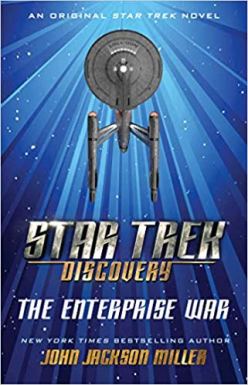Andromache, Hecuba, Trojan Women by Euripides

About the author

Euripides (Ancient Greek: Εὐριπίδης) (ca. 480 BC–406 BC) was the last of the three great tragedians of classical Athens (the other two being Aeschylus and Sophocles). Ancient scholars thought that Euripides had written ninety-five plays, although four of those were probably written by Critias. Eighteen of Euripides’ plays have survived complete. It is now widely believed that what was thought to be a nineteenth, Rhesus, was probably not by Euripides. Fragments, some substantial, of most of the other plays also survive. More of his plays have survived than those of Aeschylus and Sophocles together, partly because of the chance preservation of a manuscript that was probably part of a complete collection of his works in alphabetical order.
Blurb
Diane Arnson Svarlien’s translation of Euripides’ Andromache, Hecuba, and Trojan Women exhibits the same scholarly and poetic standards that have won praise for her Alcestis, Medea, Hippolytus. Ruth Scodel’s Introduction examines the cultural and political context in which Euripides wrote, and provides analysis of the themes, structure, and characters of the plays included. Her notes offer expert guidance to readers encountering these works for the first time.
Review
I got this book because Trojan Women is a set text that I am studying for my course but I must admit that I enjoyed reading Trojan Women so much I read the whole book.
I found the introduction and notes by Ruth Scodel hugely informative and really helpful with my research but also not too in depth and easy to read which was wonderful because sometimes introductions can be a bit of bore I find.
Andromache
I loved this play and my heart bled for poor Andromache, she really has not had the best of lives having already suffered losing her child and husband in Troy she now suffers in her new home as Neoptolemus’ concubine and risks losing everything including her life again.
Andromache is a wonderful character who tries to do everything she can to save her own life and her child’s and works out a plan that if it works should keep them both safe.
Hermione is a spoilt brat who is used to getting her own way and will do anything to get it and her father will let her get her own way. I found her character rather annoying but you could tell that was what Euripides was after.
My favourite character was Peleus, he was a true gentleman who though mature in years was not frightened to stand up for the weak and vulnerable and send Menelaus scurrying off with his tail between his legs.
I loved this play and would love to see it on stage one day.
Hecuba
Wow! What a character Hecuba is in this play. After everything she has been through with the fall of Troy and the knowledge that her future is bleak she still has strength.
Hecuba has lost her kingdom, her husband, most of her children but she believes her one son and some Trojan treasure is safe with a family friend Polymestor. However, she discovers that her beloved son Polydorus is no longer safe and Hecuba seeks revenge.
Agamemnon in this play seems very different to the Agamemnon that I am used to. He listens to Hecuba’s plea and lets her carry out her plan. He shows pity and in my opinion almost reverence for the fallen queen.
I loved this play because it showed the true power of a woman who seeks revenge.
Trojan Women
This play was heart breaking, you can’t help but feel sorry for the women of Troy and see the unfairness of war on those who are left behind.
Hecuba in this play disappointed me slightly because when she was mourning what she had lost the main thing she kept focusing on was her kingdom and the fact she was no longer queen. Her lost family always seemed to be an after thought.
Cassandra was perfect in my opinion and a hard act for any actress to perform. Poor Cassandra who has been dealt such a hard blow and is now mad.
Andromache, the perfect wife who is now left with nothing who you can’t help but pity. A stark contrast to Helen that you can’t help but hate.
Helen, the woman who brings destruction wherever she goes but gets away with it because of her beauty. Menelaus was basically a lamb to slaughter where Helen was concerned. As much as the women of Troy hated her and Hecuba made the case pretty clear that Helen should be punished, you just know that Menelaus will buckle and let Helen get away with her deeds.
All in all I loved these plays and thought the translation by Diane Arnson Svarlien was really well done, the added stage directions were also excellent. I give this book a big 5 out of 5 Dragons.
Purchase Links
Book Depository
Waterstones
(Please note these are affiliate links and if you use them I get a small % that I can use to keep my blog going. Thank you for your support)
































